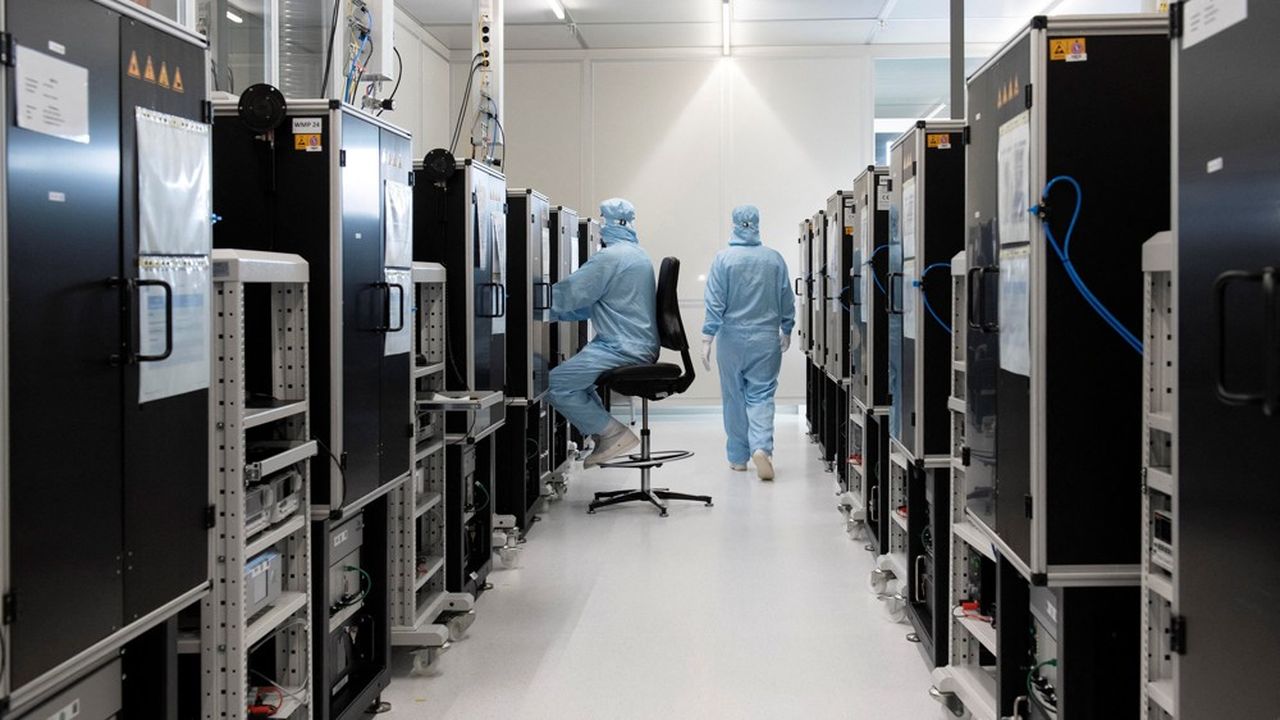
Hopes for a rapid economic recovery are fading in Germany. In the space of a few days, the country’s major economic institutes have revised their forecasts for 2024 and 2025 downwards.
While they had anticipated growth of 0.3 to 0.4 percent in 2024 in June, the Ifo, DIW and IWH institutes are now predicting a stagnation in German gross domestic product (GDP) this year. The IfW institute in Kiel even estimates that the German economy could contract by 0.1 percent, after having already shrunk by 0.3 percent, in 2023.
By 2025, experts are expecting growth of between 0.5 and 1 percent. “The German economy is stuck and floundering in the doldrums,” says Timo Wollmershäuser, head of economic surveys at the Ifo Institute.
Industrial production in decline
This update of growth forecasts is largely the result of weak investment. While public investment, particularly military spending, remains high, corporate capital expenditure has collapsed due to weak order books.
Industry, which has long been the backbone of the German economy, is suffering from high energy costs and insufficient order volumes. Stocks accumulated during Covid are tending to run out. “Demand for German industrial goods remains weak at home and abroad, and the lack of orders is becoming increasingly problematic,” says Geraldine Dany-Knedlik, head of economic forecasting at the DIW institute.
In July, industrial production fell to its lowest level since May 2020, HSBC points out in a research note, with a particularly sharp decline in the automotive sector (-8.1%). “This is a cold shower for all those who were hoping for a quick rebound,” notes Carsten Brzeski, chief economist at ING.
The automobile industry in particular is under pressure. Breaking a taboo, Volkswagen has just announced that it has at least two factories too many in Germany, while giants such as Continental and ZF have already implemented restructuring.
The sector is now facing heavy competition in China and the electric car market is in decline in Germany, following the removal of the ecological bonus. In the first eight months of the year, registrations plunged by 32%.
A sharp drop in inflation
For many experts, private consumption should contribute to the recovery of the economy. Inflation should indeed fall to 2.2% in 2024 and the wage increases obtained by unions in the public sector or the metallurgical industry will significantly improve the purchasing power of households.
Alas! Consumers are very cautious after 2022 and 2023, when belts had to be tightened. “Even the European Football Championship failed to stimulate private consumption,” says Geraldine Dany-Knedlik. “The gains in purchasing power that we are seeing are not leading to an increase in consumption, but to an increase in savings, because people are worried,” says Timo Wollmershäuser.
According to Ifo, the German savings rate now stands at 11.3%, which is higher than the ten-year average (10.1%) before Covid. According to the Banque de France, the French financial savings rate was 8.5% in the first quarter of 2024.




